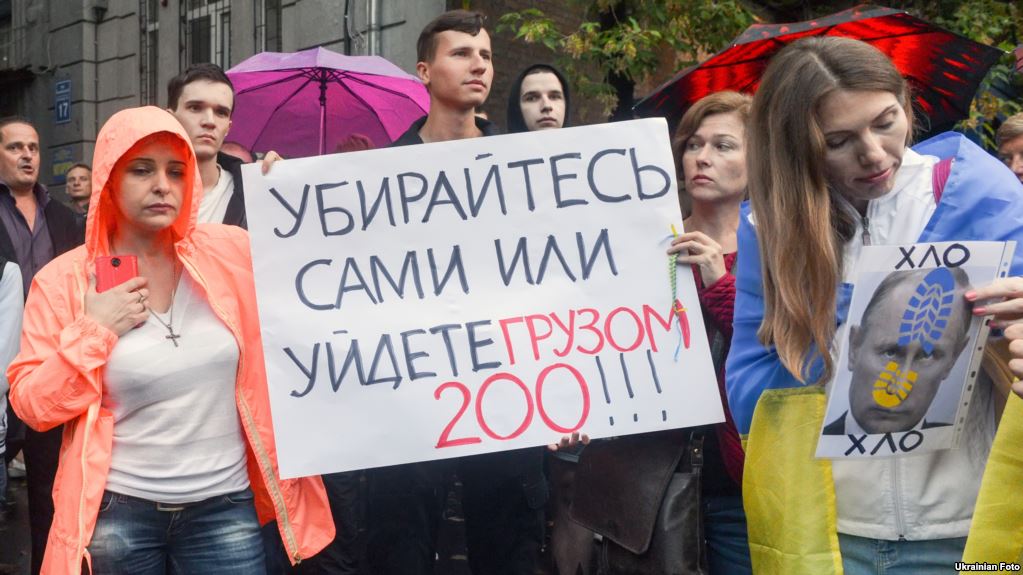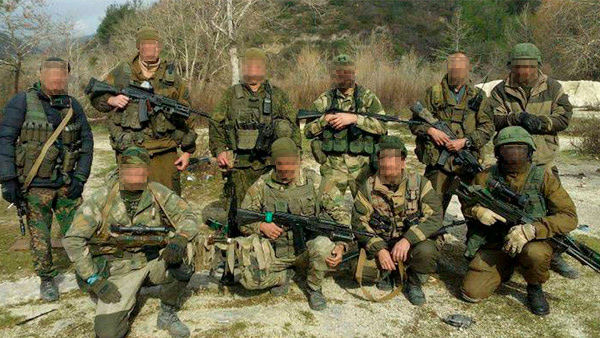At the moment many are writing about informational war against Ukraine, which has become a major reason for real bloody clashes, regarding the undermining role of the Russian television, which makes the citizens of the east and west bump heads. Of course, the role of television is big, but this just a part of a thoroughly-prepared informational campaign to fuel war.
I formerly engaged in PR supervision of electoral campaigns. Mass media are an important technological instrument in this work, but it is far from being the only one. For example, there is such a widespread technology as spreading rumours. First, a rumour has to discredit the competitor in the eyes of the electorate, second, aim for their expectations. I will try to explain how it is done with an arbitrary example. Say, the competitor of our candidate is an acting mayor, he is 40 years old and a bachelor. We come up with a rumour that he is unmarried because he is a homosexual (the attitude our electorate have towards gays is no mystery). Then we employ people to spread the rumour (headquarters agitators are used for this). Dialogues are written, which they loudly perform in public places (marshrutkas, stops, shops, smoking corners etc.), so that everyone hears them.
The contents are approximately as follows:
“Did you know that our mayor is gay?”
“You don’t say!”
“Yes, yes, and why did you think he is still unmarried? His driver is my brother’s friend. He tells such things about him, it’s unbearable. Every evening he secretly goes to an underground gay club and stays there till morning.”
“Wow! And people don’t know…”
Similar dialogues are constantly repeated. The people that heard them “on accident” catch up with the topic and begin to independently spread the rumpus further among their acquaintances, not even knowing where it came from. After some time the entire city is saying that the mayor is a secret homosexual. And of course he loses a significant amount of votes at the elections.
In Donbas today there are many rumours slash horror stories circulating about the terror which, as they say, awaits the population with the new Ukrainian government. This, for example, is what a Donetsk citizen writes on her LJ: “There are rumours, one weirder than the other. And the weirder and more absurd a rumour is, the more they believe in it. They say that all those who leave will be sent to concentration-filtration camps. Men separately, women and children – to a different location. In the camps they will check for reliability, knowing the anthem and Bandera’s biography. The crematoria are close by, just in case. The men will be sent to war, the children will be cut into body parts for the citizens of America and the women will simply be burnt. Many believe it.”
It is difficult to imagine that all of this not-so-harmless bull which provokes the hatred of the citizens of Donbas to Ukraine, is being spread rapidly and chaotically. It is not a coincidence that immediately after the Ukrainian revolution some Kremlin political technologists posted advertisements for specialists for the campaign in Ukraine on the web. I think that the spread of anti-Ukrainian rumours and wider – the spread of mass psychosis among the citizens of Donbas, for the most part, was prepared by Russian specialists in informational wars. As opposed to TV propagandists they remain in the shadows, but they have just as much Donbas blood on their hands.
Source: Echo.MSK
Translated by Mariya Shcherbinina




